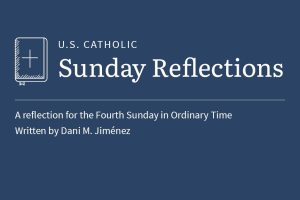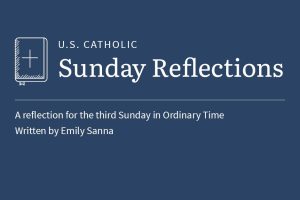A 2019 Pew Research Center survey indicated that nearly 31 percent of U.S. Catholics doubt the real presence of Christ in the Eucharist. This survey prompted the U.S. bishops to quickly organize the 10th National Eucharistic Congress.
A French laywoman, Marie-Marthe-Baptistine Tamisier, started eucharistic congresses in 1881, and by 1895, they had gained traction in the United States. While initially mostly attended by clergy, eucharistic congresses from 1930 to 1941 attracted crowds of laypeople. Now, after an 83-year hiatus, the 10th National Eucharistic Congress will run from July 17 to 21, 2024 in Indianapolis, at Lucas Oil Stadium. It will serve as the crowning event in a three-year national eucharistic revival.
Many Catholics have criticized the Congress as an expensive undertaking triggered by a questionable survey. According to Timothy O’Malley, director of education at Notre Dame’s McGrath Institute for Church Life, the Pew poll incorrectly presented Catholic teaching on the Eucharist in its questions, and it assumed that faith can be proved through well-stated beliefs.
In response to criticism about the Pew survey, Georgetown University’s Center for Applied Research in the Apostolate (CARA) conducted a 2023 survey with refined theological questions. The CARA survey showed that 49 percent of adult U.S. Catholics affirm transubstantiation, while 51 percent espouse a symbolic view. Notably, the CARA survey found that belief in the real presence strongly correlates with church attendance, with 95 percent of weekly Mass attendees and 85 percent of monthly attendees supporting transubstantiation.
Insufficient information drove a costly reaction that will likely attract churchgoing Catholics who already believe in the real presence. According to the Congress’ registration page, passes range from $250 to $360, depending on individual or group registration, age, and clerical status. To put the cost in context, a four-day pass to Walt Disney World costs $396, plus tax. While the Congress’ spiritual significance may transcend monetary considerations for churchgoing Catholics, many nonpracticing Catholics might consider Disney the better deal.
I pray for the Congress’ success, but the situation raises important questions about how the church can extend eucharistic hospitality to nonpracticing Catholics.
Christian faith is grounded, first and foremost, in God’s oikonomia. In ancient Greek, oikos means “home,” and oikonomia (from which we get the word “economy”) means “managing a house.” While we might think of the New York Stock Exchange when we hear economy, early Christians thought about kitchen tables, household chores, and family finances. In Ephesians, St. Paul describes God’s mysterious plan in Christ as God’s oikonomia. Paul says God plans to lavish the world with the riches of divine grace in Christ to “unite all things in him, things in heaven and things on earth” (Eph. 1:10).
The Book of Revelation confirms this oikonomia when it says, “See, the home of God is among mortals. He will dwell with them; they will be his peoples, and God himself will be with them” (21:3). It is a mind-blowing revelation. Through, in, and with Christ, God wants to share all God’s life with everything in God’s cosmic household until it shines with God’s glory.
The Eucharist is the greatest of all sacraments because it really, truly, and substantially unites us with God. In schools, prisons, hospitals, homeless shelters, retreat centers, and churches, Jesus and his followers break bread, bless wine, and commune with God and one another. The consecrated bread and wine become spiritual food and drink, making God’s oikonomia visible and available to all.
In the Catholic imagination, the church promotes and spreads God’s economic action through the liturgy. Liturgy comes from another Greek word that means the “work of the people.” In ancient Greece, wealthy, free male citizens came together in an ecclesia or assembly—without women, children, poor people, or enslaved people—to vote on and fund leitourgia, public works such as aqueducts, roads, theaters, and temples. In the Catholic imagination, the church is God’s all-inclusive ecclesia, where the risen Lord Jesus and his followers assemble daily to share God’s greatest economic good, the sacrament of the Eucharist. The liturgy should promote eucharistic hospitality as an ethical action.
In ecumenical dialogue, eucharistic hospitality can mean eucharistic sharing or intercommunion, which involves inviting members of non-Catholic Christian denominations (like Eastern Orthodox churches) to participate in the Eucharist under certain circumstances. We should also see offering eucharistic hospitality to nonpracticing Catholics as an act of solidarity. Far too many baptized Catholics feel estranged from the church and its liturgy. Hospitality and revival require openness to interruptions and strangers.
A key theme in Catholic social teaching is solidarity, which invites us to see community as our goal in Christian life. In Fratelli Tutti, Pope Francis’ encyclical on fraternity and social friendship, he defines solidarity as “thinking and acting in terms of community.” In Caritas in Veritate (On Integral Human Development), Pope Benedict XVI similarly defines solidarity as “first and foremost a sense of responsibility on the part of everyone with regard to everyone.”
When alienating sin crouches at our door and makes us question whether we are our brother or sister’s keeper (Gen. 4:9), solidarity prompts us to respond emphatically, “Yes.” St. Pope John Paul II puts it well in Evangelium Vitae (On the Value and Inviolability of Human Life): God entrusted every individual’s life to their fellow human beings “according to the law of reciprocity in giving and receiving, of self-giving and of the acceptance of others.”
So how do we make room for our siblings in Christ at God’s welcome table? Maybe we should host the next Eucharistic Congress at Disney World, allowing the church to be the guests.
What would it look like to gather outside the church building for lay-led liturgies of the hour? We should not place all the weight of revival on the Eucharist and priests. Remember, a laywoman started the movement for eucharistic congresses. In embracing diversity and inclusivity, let us explore new avenues for sharing God’s love and grace beyond traditional settings.
This article also appears in the July 2024 issue of U.S. Catholic (Vol. 89, No. 7, pages 40-41). Click here to subscribe to the magazine.
Image: Unsplash/Dan Dealmeida













Add comment